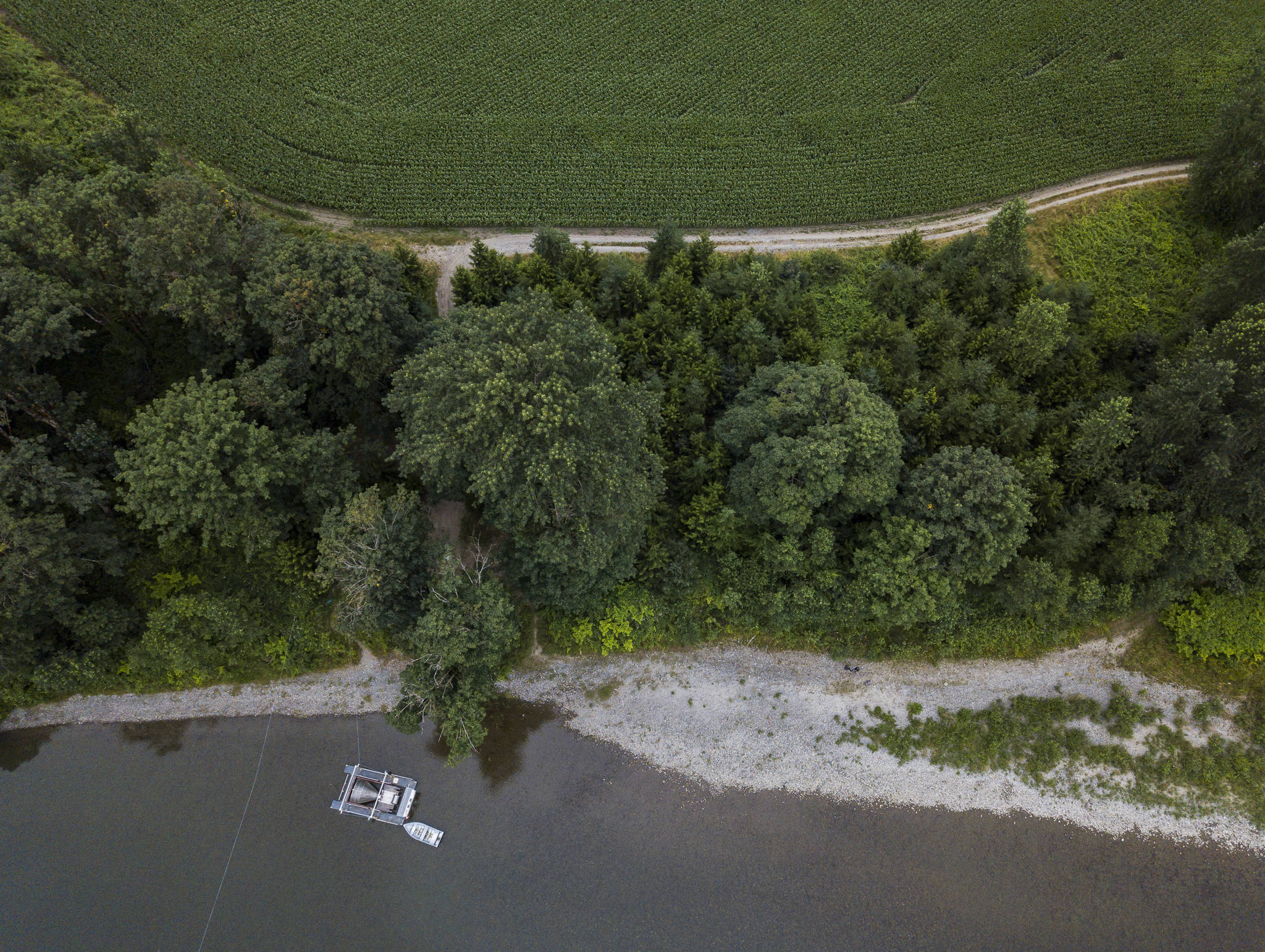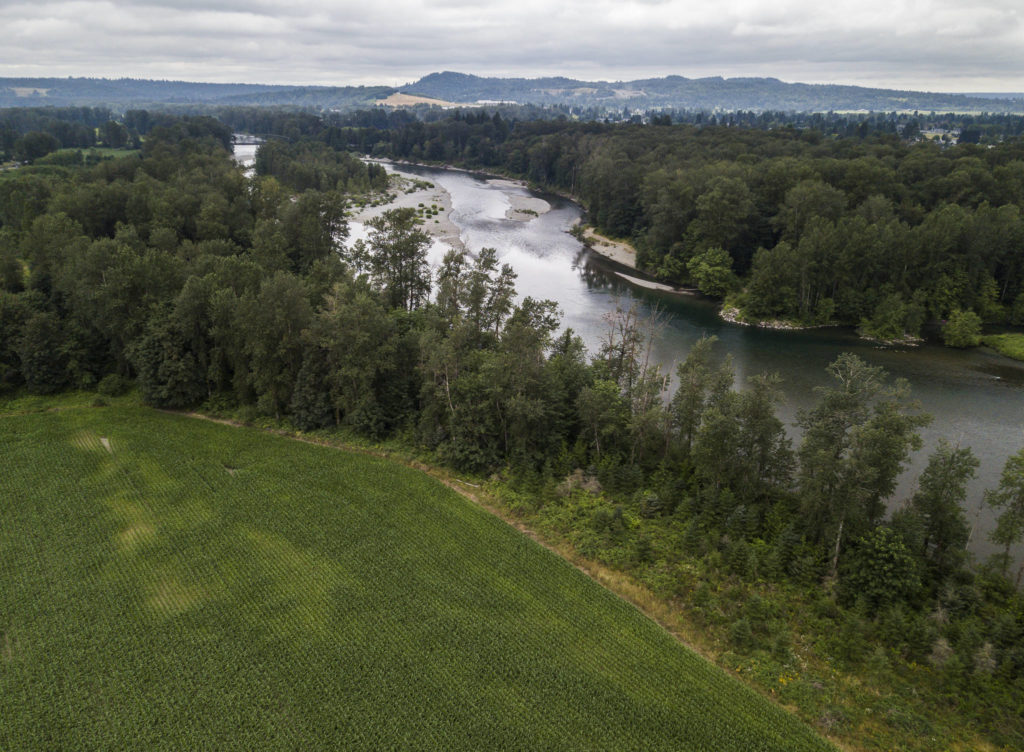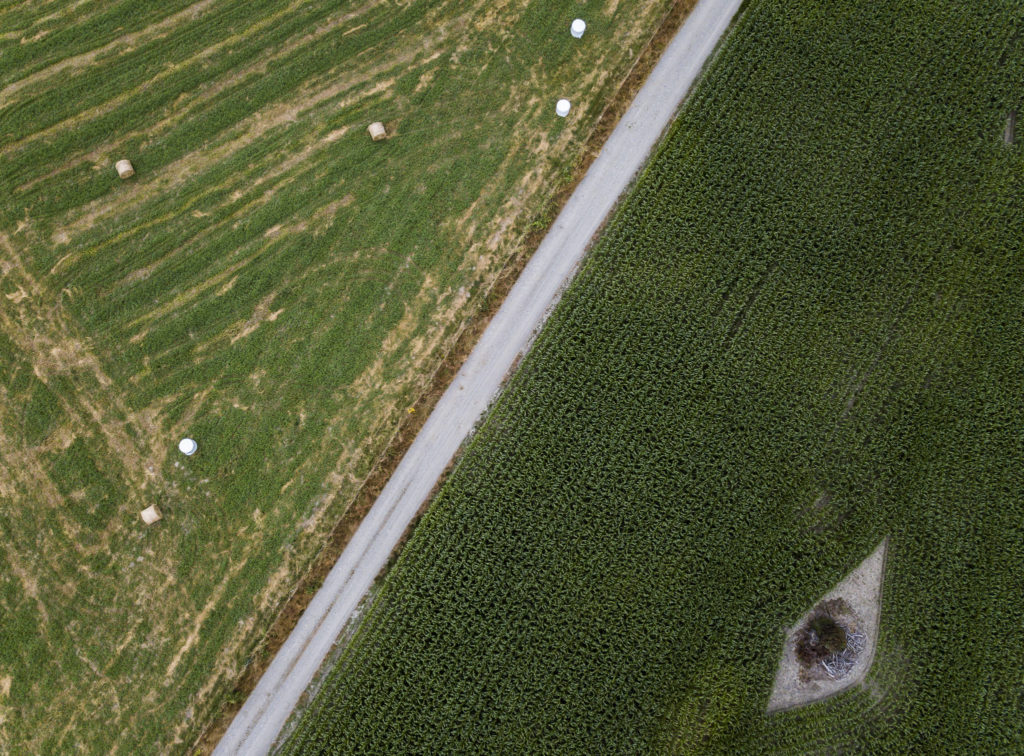MONROE — Dale Reiner spent his childhood on six acres along the Skykomish River, just outside of Monroe. His family owned the land for more than 100 years.
He grew up, married the girl who lived next door, and as he got older purchased more land, some of which happened to be part of his family’s original homestead in the Tualco Valley.
A couple of years ago, the Reiners sold their 260-acre farm to PCC Farmland Trust with the promise that the property would be preserved forever. Now, the Tulalip Tribes is preparing to purchase the two miles of shore along the Skykomish River to restore the salmon habitat there.
After a lifetime spent on the plot of land he knew every inch of, Reiner won’t be around to see the restoration. He died in April at age 77.
He and Charlene Reiner grew up together. They were married in 1965, and made a life on the farm where they raised two children.
“He knows every nook and cranny and every tree that was grown, chopped down or otherwise,” Charlene Reiner said of her husband when they sold the farm in 2018.
The sale to the tribes is in the works, and is expected to happen once parcel lines are redrawn. That process has taken longer than expected due to the pandemic.
Because those boundaries have not yet been finalized, no price has been set, conservation manager Robin Fay said.
PCC Farmland Trust bought the property for $3.4 million. The nonprofit was started by the same group who opened PCC Community Markets, a local grocery chain with stores mostly in King County.
For the past couple of years PCC Farmland Trust has been working to recoup some of that money by applying for grants. The organization expects to recover the rest through the Tulalip Tribes purchase, and eventually by selling the rest of the land.
For now, a farmer is leasing the property to grow crops that feed dairy cows.
One of the organization’s main goals is to make sure the property is preserved forever through a conservation easement. It’s an intricate process that puts restrictions in place to ensure the plot can never be developed.
The trust takes on the funding and steps to preserve the land, so the sellers, in this case the Reiners, don’t have to.
“We felt really honored to be able to play that role for the family and be able to buy the property from them outright and make it really simple,” Fay said.
About 100 acres of the property can not be used as farm land, because it’s a wooded area that serves as a buffer to protect the salmon habitat.
Another benefit of the tribes’ purchase is that a future buyer interested in farming will not have to pay for the entire 260 acres, but only the land they can use.
The tribes worked with Dale Reiner for years before he sold the property. He knew the tribes would someday take over the shoreline.
Haskel Slough runs through the southern part of the property, bordered by the Skykomish River. Both are important to salmon that make their way to Puget Sound, especially Chinook.
That fish is on the Endangered Species List and is the primary food source for resident orcas, said Brett Shattuck, a restoration ecologist for the tribes.
“The Tulalip Tribes, this is one of their primary watersheds,” he said. “It’s definitely an area where the tribes is really interested in preserving and restoring habitat for all kinds of fish species, and also just helping to protect the resilience of the flood plain and the river from all kinds of threats we expect to come down, including population growth and climate change.”
For years, the tribes have been monitoring salmon near the property with what’s called a smolt trap. It’s a big metal cone-shaped device that catches juvenile fish.
It helps forecast state harvest rates, and track population trends and health of the fish. Plus, it provides information on what needs to be done to restore those species.
After the tribes acquire the shoreline, one of the main projects they hope to work on is to restore Haskel Slough. An inlet dike made of rock keeps fish and water in the river from flowing into the slough.
The tribes hope to reconnect the two, so young fish can use that area to grow before they head into the salt water.
“We’ve found that the bigger a juvenile Chinook is when it leaves, the much better chance it has of survival in salt water,” Shattuck said.
Based on similar projects, he expects to see benefits pretty much as soon as the work begins. Nearly every type of river fish in the Puget Sound uses the habitat, including Chinook, coho, chum, steelhead, pink salmon and different kinds of trout.
“Last year was the worst year on record for virtually all our salmon species in the Snohomish River, so every single one of our salmon stocks is in a really bad state right now,” Shattuck said. “It just highlights the need to do big projects as soon as we can.”
Correction: The last name of The Tulalip Tribes restoration ecologist Brett Shattuck was misspelled in an earlier version.
Stephanie Davey: 425-339-3192; sdavey@heraldnet.com; Twitter: @stephrdavey.
Talk to us
> Give us your news tips.
> Send us a letter to the editor.
> More Herald contact information.





























